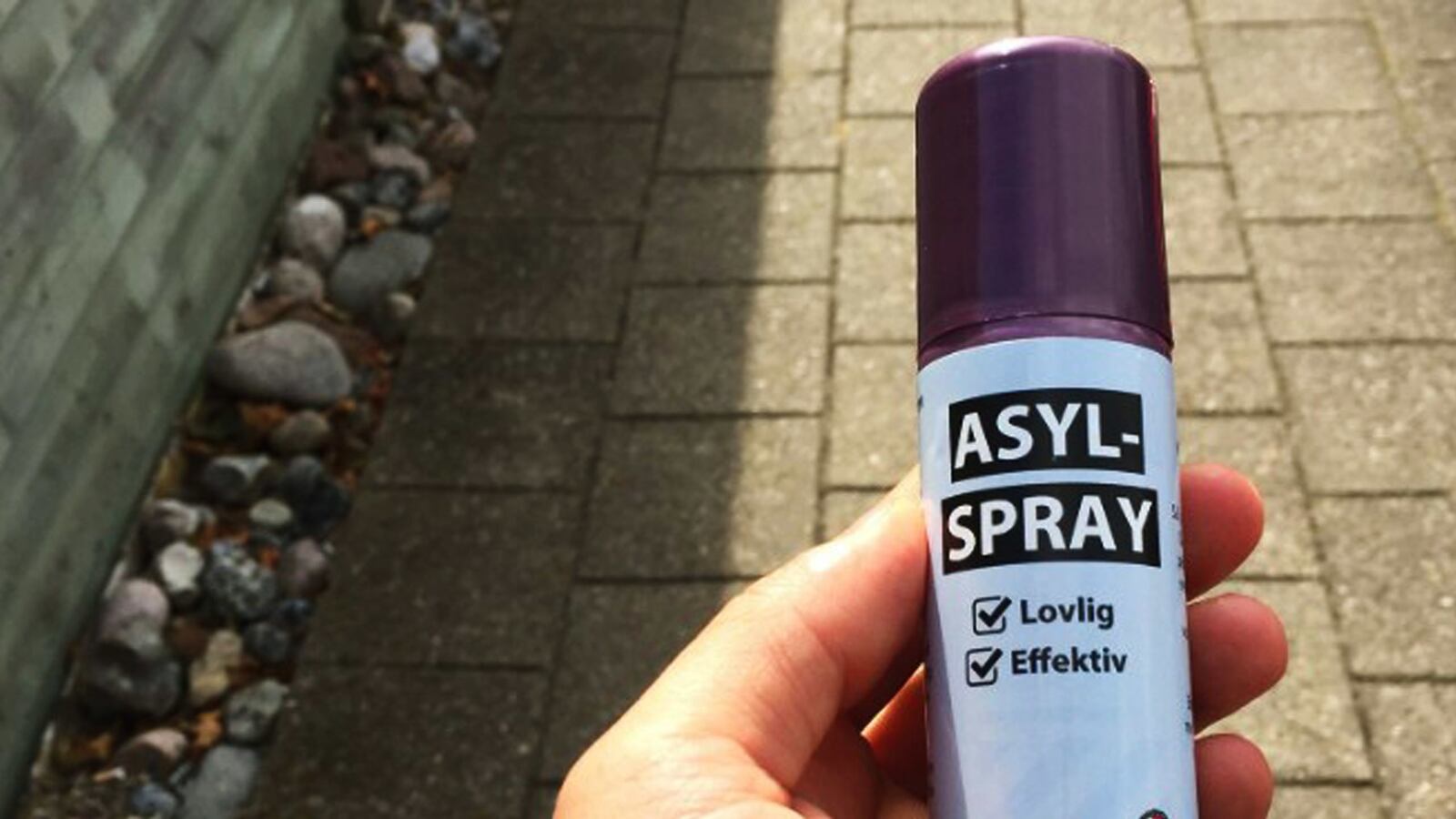ROME — There has never been any question about how some Danes really feel when it comes to refugees and migrants. After all, Denmark is a country where the parliament actually voted to seize certain high-value items from them to help offset the costs of their housing and health care. It is also a country where it is legal to bounce migrants and refugees out of nightclubs just for being migrants and refugees.
Now some Danes have taken things a step further by handing out a special pepper spray that is meant to keep refugees away. The refugee-repellent product, Asyl Spray (presumably playing on the word asylum), was distributed in the southeast port city of Haderslev last weekend by the right-wing Danskernes Parti political group.
The purse-size spray can features the promise to “repel refugees” in a “legal” and “effective” way.
Party leader Daniel Carlsen, who says he came up with the idea, rebuffed outrage by claiming that most pepper spray is illegal in Denmark, and the anti-refugee spray provided a legal alternative.
“I cannot see how it is racist,” he told CNN. “Pepper spray is illegal here so we wanted to figure out a way for Danish people, in particular women, to protect themselves. It’s obviously not the ideal situation.”
He said he knew that while the spray could not stop migrants and refugees from trying to reach Denmark, it might act as a deterrent for those that have arrived. “In the long run we want to repatriate the migrants, we want to repatriate non-Westerners in general, that is in the long run,” he said. “In the short run we want to provide solutions to make life better and safer for the Danish people.”
Not surprisingly, the Danish approach to migration has raised eyebrows among those concerned about the tens of thousands attempting to reach Europe. The United Nations agency on refugees issued a statement of sheer disgust about the produce, stating that it “strongly regrets that this kind of incident is taking place in Denmark against asylum seekers and refugees, people who have already suffered so much.”
Carlsen doesn’t seem to care. “We are tackling an actual problem in our society, where many Danes feel unsafe,” he told local Danish television station SYD. “It is a disgrace to Denmark and Europe as a whole that an organization like this is promoting mass immigration to Europe, and it will destroy Europe. We are not saying that migrants are all rapists, but the problem with mass migration is the mass, and because of the mass it will in time replace the indigenous people of Europe.”
A year ago, Denmark started placing advertisements in English and Arabic in Lebanese newspapers warning potential refugees to Europe to stay put, or at least not to set their sights on Denmark as their promised land. One ad stated that the country had cut benefits to new refugees by half. Another warned there were new quotas that might limit their chances of asylum.
Norway and Hungary have also used traditional advertisements as well as social media to warn potential migrants and refugees to stay away. A television ad campaign in Hungary features scary-looking men on motorcycles hunting down refugees in a forest to the tune of dramatic music. “Don’t come here,” says the mayor, who is also featured on horseback in the advertisement, apparently hunting refugees and warning that trespassers who enter the country illegally could go to prison, his voice intoning over pictures of high electric fences and police cars.
Sweden, which welcomed refugees until public housing and refugee centers reached capacity, has also started using social media and even videos with techno beats to warn refugees that the utopia they dream of is gone. Instead, they will be housed in tents and forced to endure cold Swedish winters, which are depicted by a snowy fields and warnings of 12-month-long winters. “If you plan to come to Sweden, bring your own tent,” the advertisement suggests.
Since January, more than 300,000 people have made the sea crossing to Europe. Clearly the threat of refugee repellent sprays and negative advertisement about cold winters has done little to stop the flow of migrants into Europe. That’s undoubtedly because as unwelcoming as Europe is becoming, it still sounds better than where they are coming from.






